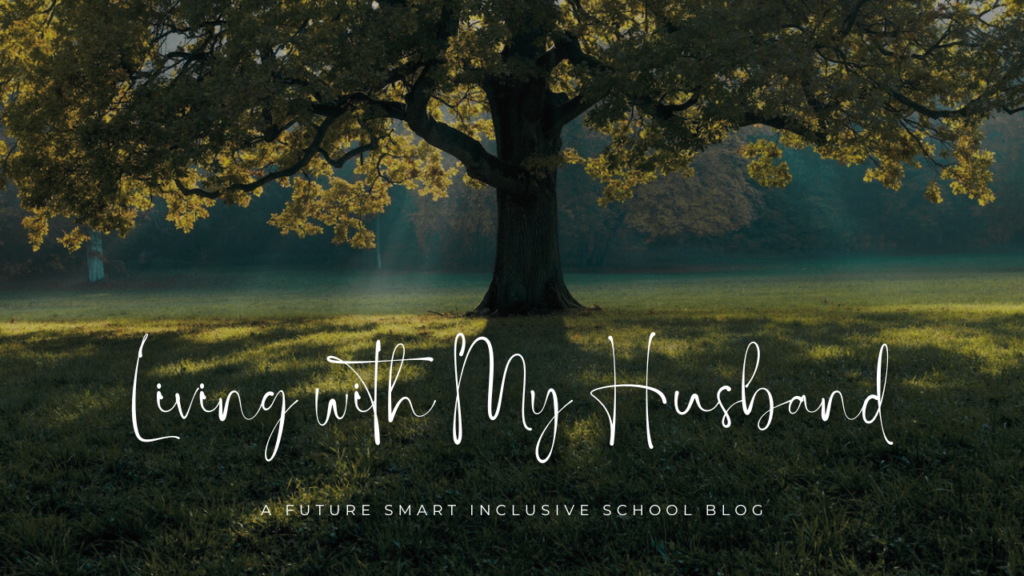Living with My Husband
Children with autism, grow up to be… adults with autism. That is a barebones fact. Children may learn to adapt, but autism isn’t an infection that goes away. Because the world is only just opening its eyes to what autism looks like, many people around us may have autism, without anyone ever suspecting. Today’s blog is about autism in adults. The story has been sent in by a contributor who wishes to remain anonymous. Names have been changed to protect her identity.

I got married in 1994. It was an arranged marriage. My husband’s family was close friends with my paternal aunt’s family, who lived in Lahore. When, my aunt was convincing my parents for the match, she mentioned Suleyman mostly stayed at home, and didn’t spend evening out with friends, he was well-mannered and reserved, and how he was very pure and child-like with his love of games. For my parents, and many other Pakistani parents, and even girls, this would be a sketch for someone “sharif“. He had a degree in computer sciences, which was an emerging concept at the time. My parents were already halfway convinced as they were also summarily familiar with the family. They liked Suleyman too. At the time, Suleyman had just received a job offer in the US and would be relocating to the West Coast in a few months’ time. Things moved fast, I was wed to Suleyman just before he left for the US. Within the space of a few months, I joined him there.
Life was good for us. I soon realised Suleyman had his own quirks: he didn’t eat his fried eggs if the yolk got broken – the egg had to be intact. It was something I perfected within a few weeks of living with him. He didn’t like his clothes starched. Suleyman preferred to wear sportswear (tracksuits) instead of formal clothes. His IT job gave him that freedom. On rare occasions, when he had to wear formal clothes, he would be fidgety and extremely uncomfortable. And then there was his introversion. He didn’t like to socialise. Growing up in a Pakistani family, he was accustomed to it, but now that we were living independently, he gave in to it completely. Our friends visited us, and we visited them sometimes, but those times were rare. When Suleyman came home, he preferred to play computer games. That was part of his daily routine. Suleyman was funny and caring, and sometimes he was actually childlike in many ways – he got very excited when the Batman movie was released. He watched it thrice over the weekend. But there was also the issue of his lack of sentimentality or show of emotions.
We have three children: our daughter, Nafya and sons, Arsalan and Asad. All three of them are adults now. Before Arsalan was born, we had a stillborn daughter. Naturally, I was broken about it. But Suleyman behaved as if nothing had happened. We had spent months planning for the arrival of a child, and they had gone up in smoke. Suleyman behaved as if nothing had happened. One day, in a heated moment, I begged him to say something. I assumed that being a Pakistani male, he had deliberately suppressed his emotions. At first, Suleyman was hesitant, then eventually he found his words. He told me he didn’t understand what the big deal was. If I had a weapon, I would have hurt him then. Suleyman isn’t a bad person. He is a wonderful dad to our kids and loves them fiercely. But I didn’t understand that Suleyman couldn’t process feelings like I could. That came later.
With our children, life wasn’t so easy. Arsalan always seemed to be the odd one. As a young child, he was hyper and couldn’t stay still. His teachers were having a difficult time at school too. We didn’t understand him. Arsalan was also highly critical of many things. Like his father, he was very choosy about what he wore. He was a very picky eater. And his behaviour problems became more difficult as he grew. Eventually, he was diagnosed with Autism when he was 7. It came as a shock. Arsalan could walk and talk. How had we never seen this? But, it explained many of his behaviours. Fortunately, we had help available in the US, but the cost was high. Suleyman and I had decided to give Arsalan our absolute best. So, everywhere we could, we saved each cent to provide Arsalan with the required care.
Money was just one aspect. The demands it put on the entire family were astronomical. Many times, I felt like a bad mother for having failed Arsalan. But I was failing my daughter and younger son too. To compound issues, I found that Suleyman was not helping. I was battling on several fronts each day. Suleyman was content with coming home each evening and playing his cursed video games. We fought a lot in those days. Suleyman’s emotional unavailability was also something I detested. To this date, I remember how he threw a tantrum when his most loved socks went missing. He blamed me for abandoning him, that he was alone, with nobody to help him, as I was busy trying to manage Arsalan’s meltdown. On several occasions, I almost gave up. I couldn’t handle Suleyman’s selfishness and absence when we needed him most. I came very close to packing up everything and leaving the house. But then, sense would prevail. And I stayed every time.
The events that happened all those years ago are far away. Today, all three of my kids are grown up. Arsalan followed in his father’s footsteps and works in IT. Although he never received a formal degree – that’s just one of the side effects of autism, he gained vocational training from a prestigious organization. He works remotely because he doesn’t like crowded places or, as he says, he’s “allergic” to people. By this time, I also had a smartphone and access to the internet, but more importantly, I had time to read. Although Arsalan doesn’t require regular interventions anymore (he still has a therapist he visits monthly), I still wanted to read about what was happening in this sphere.
As I read people’s stories, a thought occurred to me. What if Suleyman was also autistic, and no one ever knew? As I researched further, all the pieces fit. He was an IT professional, he loved writing programmes, and his obsession with video games. Years ago, when Play Station 4 was released, he was more excited than Asad, who was around 11 or 12. It also explained his emotional unavailability. But these were merely my thoughts. On my next trip to Pakistan, I had the opportunity to observe many things without hurdles. I asked my mother-in-law many questions about Suleyman’s childhood. They validated my theory. And then I also noticed small traits within Suleyman’s brothers and his nieces and nephews. I was absolutely convinced that Suleyman, the man I had married, had kids with, against whom I even harboured a little grudge over the years for his lack of sympathy, too, was autistic.
Suleyman finally agreed to be tested last year. It was the fruit of Nafya and my labours. It took us several years to convince him. To me, the result did not come as a surprise. Yes, Suleyman had autism. It wasn’t till a few weeks later that he confided in me that since his diagnosis, he felt liberated. He had lived with a heavy burden of not being like others or not being the man I wanted him to be sometimes. Suleyman and I made a pact. Now that he knew, he would make efforts to fill some gaps and I would help him every step of the way.
Each day, I see Suleyman trying his best. Each day, I also witness his struggle to fit in. When I think about the early years of my marriage, I feel sorry for Suleyman too. While, we are happy that Arsalan received timely help as a result of his diagnosis, I think, had anyone known about Suleyman’s autism earlier, he would never have been able to achieve what he did. I understand that things are still evolving in Pakistan, but when Suleyman and I were children, you were either “normal” or “abnormal”. And if you weren’t normal, you would automatically be left out of so many things. On the bright side, Suleyman’s diagnosis has helped give him peace.
I think of many other adults, some of whom are high-functioning. They may get accepted into society. But their challenge is to learn acceptable behaviours and to adapt themselves without knowing why. Suleyman was both, fortunate and unfortunate. Fortunate because no one knew about this thing called autism back then, his struggle with studies and social skills was just thought of as Suleyman’s personality. If they had, perhaps, no school would have accepted him. Unfortunate because, many times, Suleyman faced situations he wasn’t prepared for, and he didn’t what he was doing wrong. He didn’t receive the help that was available for Arsalan and children today.
Suleyman’s diagnosis has brought peace to us all. I know for certain now that, he isn’t careless on purpose. It’s just the way he is. Ever since, I’ve found it easier to forgive him for everything I held against him through the years. In retrosepct, I think that knowing that my son had autism, and walking on that journey with him helped me prepare for Suleyman’s diagnosis. If I had known he had autism before we got married, I might not have agreed to marry him, thinking of it as some dangerous malady. In this way, I’m grateful to Arsalan for introducing me to this world.
Autism in Adults
More and more adults are being identified and diagnosed today. Parents of autistic children often recognize their own patterns and are realising that they, too, have autism. The World Bank estimates that 1% of the global population is on the autism spectrum. That’s roughly 80 million people!
Did you enjoy reading this? Read our other blogs too!




Leave a Reply